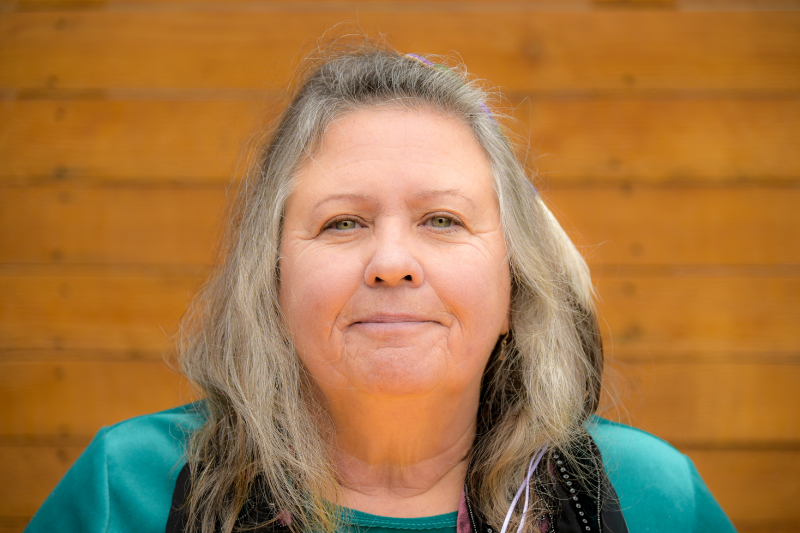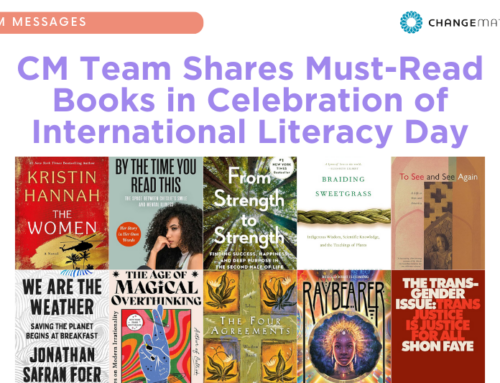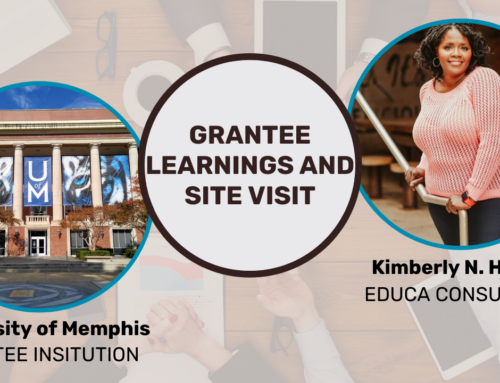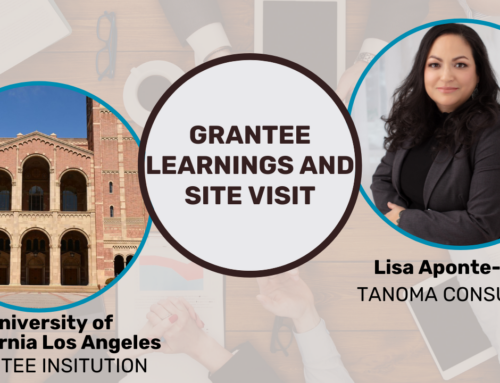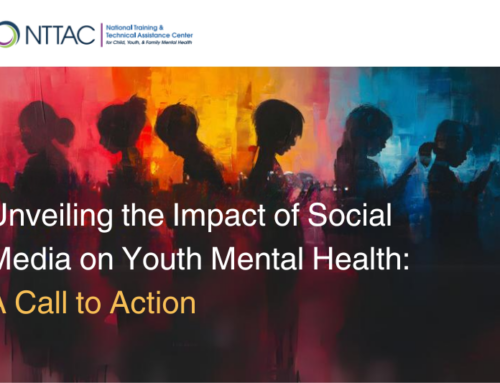Equity in Action Podcast – Episode 7
About the Series:
Change Matrix has launched a new Podcast Series for 2021, called Equity in Action. Since our inception in 2008, founders Elizabeth Waetzig, Rachele Espiritu, and Suganya Sockalingam have maintained a focus on cultural competence and eliminating disparities. We continue a focus on equity on all of our current projects, continuously look for ways to take action, and look forward to a world where all people get what they need, in ways that work for them, in their communities.
What we Discuss in this Episode:
Shannon CrossBear, formerly a change specialist at Change Matrix, is a consultant to systems that support children and families. Listen as CM Co-Founder Elizabeth Waetzig talks with Shannon about the importance of being in relationship to achieve equitable outcomes.
Transcript of the Conversation:
Elizabeth Waetzig:
Hello, and welcome to Change Matrix Podcast, Equity in Action. I cannot tell you how delighted I am to be sitting with Shannon CrossBear in conversation. Shannon is someone who I’ve known as a colleague, as a friend, as a wise teacher. I’m just so thrilled to be in conversation with you, Shannon, and hoped that you might tell our listeners a little bit about you.
Shannon CrossBear:
Sure. Thanks, Elizabeth. My name is Shannon CrossBear, that’s kind of the simple thing, right? My name is Shannon CrossBear. I live on the homelands of the Ojibwe people on Lake Superior in Northern Minnesota. And I’m coming to this conversation because I’m another human being on the planet. And I think that we can do better than we’ve done in the past, and I’m going to do everything in my power to help elevate those ways that I think may make a difference. So, thanks.
Elizabeth Waetzig:
I totally expected you would come into this conversation exactly that way, because that is how I’ve known you to be throughout all of these years. I want to take you back a little bit and ask you about how you first became aware of equity, of diversity, of inclusion or the lack thereof?
Shannon CrossBear:
Yeah, I have thought about this a little bit and I recall when I was about 6 or 7 years old, and my dad and I had taken a trip and we were going to… I knew there was a meeting taking place. And so, I knew that it was important that I felt very proud that I got to go along to this meeting that was going to take place.
And it was in this rural community and there was a minister, a Black minister, and several other folks that were in this meeting. And I don’t know what was happening. I was too young to be really aware of what was happening. All I know now, looking back, that I think it was kind of a clandestine meeting in the middle of the civil rights movement.
And the young girl, that was the preacher’s daughter, and I, we got shooed outside so we could play and it was great. It was a great rural farmland, beautiful spot. And I remember we were skipping down the road and I just felt so great, because I had this new best friend, and then the sun started to set and it was the most beautiful sunset, and I got to see things in a different way, because where I lived, you didn’t get to see the wide expanses of this flat land that I was visiting.
So, there was a pink sky and I just wanted to stay there with my friend forever. And we both looked at each other and we knew we had to go inside, because where we were located, there was a sunset law and people of color could not be out after dark. And we just wanted to stay and watch the sunset.
And I remember thinking how that just wasn’t fair. I just thought, “Why can’t we watch the sunset? Why do we have to be afraid?” And not only did we have that instilled in us, but I remember the adults at the door making sure that we got in before the sunset and it was because of that. And somewhere in my awareness, I understood the importance of that and what that meant. So, I think that’s one of the early times where I was really hit with an understanding of inequity.
Elizabeth Waetzig:
Yeah. Yeah. It’s this idea that there was something that was so beautiful that should be available to all of humanity that wasn’t available to you, and just the fundamental unfairness of that is, it makes it really visceral. Everybody should be able to look at a sunset outside.
Shannon CrossBear:
Right. Right.
Elizabeth Waetzig:
So, that growing awareness of unfairness or inequity, how did that influence your choices early on?
Shannon CrossBear:
Well, I grew up, I mean, I was very fortunate to grow up with some great models for me, and about inclusion. And so that was just a part and a way of life. And it wasn’t until I was a little bit older that I didn’t understand it wasn’t a way of everybody’s life. I remember that clearly too, because we had some folks that were over, I’m not quite even sure, again, I was pretty young. I’m not quite sure where they were from, or how they got there. They were students and they were from Africa.
And my dad either sponsored these young men or something. I don’t even know what the situation was. But they were with us for a couple of days. And there was two, and I remember them as a young child, because they were great, Moses and Steven. And Moses was, I mean, he was just so much fun.
And he taught me about eating sugar cane and I never had actual sugar cane. So, he gave me a sugar cane and I was a child and I loved it, of course. And then Steven was learning English and he was reading a book, and he identified a word to me and I knew the word, it was window. And of course, I had to take him to every window in the building just to make sure he got it. It was pretty funny.
But the recognition that not everybody would have the same reaction happened when my dad decided we were going to have a barbecue, because this was something that wasn’t really a part of their culture. So, he wanted to share that. So we were in the backyard and I think we had hot dogs and it was just like, I can’t even remember what else, but I knew that we had ice cream, because I had this great job of being able to serve everybody.
And even though I was a young child, like I had said, I was probably 6 or 7 even then. And I was walking around, giving people ice cream. And the strangest thing was that one of the people that lived up the road from us, we had hedges in the backyard. And one of the people that lived up the road from us was looking over the hedges and I called him out, because I thought maybe he wanted to come to our party.
And I said, “Come on in,” and I’ll just call him Mr. X. And he was horrified and he ran away. And I was very confused by that. So, I had a conversation with my dad about what was Mr. X doing? What was that about? So, my dad explained to me that when people don’t understand other people, they become afraid, and that Mr. X was afraid.
And I’m like, “But if he came then and saw, he wouldn’t need to be afraid.” So, that was a recognition at that moment in time that not everybody saw the world in the same way in terms of inclusion and people. Right?
Elizabeth Waetzig:
Right. And it’s interesting that you started out sort of understanding the unfairness, the fundamental unfairness. And then you began to understand fear and sort of difference, fear of difference and inclusion. And that those things were in tension with one another. So, it sounds like you had a lot of opportunities to learn from experiences early on. Was there ever a point, Shannon, when you felt like it was important to take it upon yourself to learn more intentionally, to go out and seek information, or knowledge, or more, in your life around equity?
Shannon CrossBear:
Yeah, that’s a really interesting question, because when you’re embedded in, your life is about trying to show up, trying to be visible, trying to create spaces, not only for yourself but for other people to have equity and pushing against that. I don’t know how to separate that out to say, “Oh, I woke up one morning and said I’m really going to intentionally work on this.” I think it’s more of, if I want a quality of life, then this is what I need to do.
I’m reminded of when some other work that I was doing at another point in time, that was kind of ahead of it, I would say, ahead of its time, and I was having this discussion and the recognition was that nobody gives you permission to get out of the basement. You have to claim your permission to get out of the basement kind of thing.
And it’s been continuous and it doesn’t always work. I don’t always get the response that I want, but I keep showing up, because I think… And keep challenging the people’s understanding of what it means to really treat each other as equals and how that really gets applied in our lives. Right?
Elizabeth Waetzig:
Yeah. Yeah. I really love that idea of, I mean, it doesn’t have to be reading a book or going to a class or a course or whatever. It’s really about continuing to show up with curiosity and compassion, but also a willingness to challenge. And it sounds like that’s been your journey in your own life around both understanding equity and inequity, but also promoting it. Is that right?
Shannon CrossBear:
Yeah. I think, ultimately this is like I was getting ready this morning and of course I was brushing my teeth and the mirror is right there. And I’m like, “You know, you’re the only one you come in with and you’re the only one you go out with. So you better make friends with yourself.” And if you’re going to make friends with yourself in that space, it’s to really understand that I come from a world relational view, so I understand that we’re all related.
So, if I’m making friends with myself, I’ve got to make friends with the rest of the world. And that seems like a big thing sometimes, we get overwhelmed by all the areas of inequity that there are, because when you start to unpack it, it’s layer upon layer, it’s all of these kinds of things. And yet, what do we have control over? And what is our contribution to the whole?
Elizabeth Waetzig:
I really love that distinction between unpacking the inequity and seeking the equity through connection, seeking it through a relational worldview that we are all connected and that we, if we like ourselves, we, therefore, can move forward in love, like with others with whom we’re connected, and maybe that’s the path to equity or a path to equity. I just think that distinction between do you focus on inequity and/or do you focus on what brings a sense of inclusion and equity within the context of diversity is interesting to me. Is that something that you see as well?
Shannon CrossBear:
Yeah. I think it’s interesting to me as well. Though, my experiences told me that one of the things that leads to equity is relationship, it takes that relationship. And if you’re trying to seek equity without seeking relationship or without being in relationship, it’s difficult to do, because you will continue to see other.
And to distinguish yourself in your individuality, while embracing that there is no other, and to really move from that I mentality to the we mentality, it’s a big switch, and it’s not an automatic switch. I think people, we work at it, we as human beings work at it, because we’re always differentiating ourself from creation, from how are we different from all of nature. I mean, we really spend a lot of time doing that. And the other thing that makes an assumption then has to do with that equity, if we differentiate ourselves, then we’re not going to be in an equal space.
Elizabeth Waetzig:
Right. Oh, this is why I love talking to you. There’s such wisdom in what you say and how you say it. This act of differentiating ourselves in sort of that I culture is really the antithesis of equity. It will not get us to that place of equity. So, finding that place of we, doing it together, doing it collectively, being in relationship is so fundamentally important and so fundamentally different, I think, than a lot of folks, that I know anyway, think. And so, Shannon, this is a great opportunity to ask you a little bit about where are you seeing equity in action in our world today?
Shannon CrossBear:
I see it. … Inch by inch is where I see it.
Elizabeth Waetzig:
Right on.
Shannon CrossBear:
Really, inch by inch, and in those relationships in big places, there’s still the push, there’s still the little bit of a push. I was on a call the other day with some folks that are entering into the research and evaluation world. And they’re trying to, I think, develop a curriculum that told them where they could go to get some really good information but to really become more embedded in their research and curriculum to be less racist and create more equitable opportunities.
That was good. But then, later in the day I was on a call and there was somebody that said, a researcher, and he said, “Well, I just do that white guy researcher and evaluation thing,” and I had to challenge him and say, “Why do you think that that belongs to you as a white guy? That evaluation and research belongs to you as a white guy? Can you explain to me why you would say that?” Not acknowledging that other peoples were researchers and evaluators. And they might have created that in a different system.
But it’s those kinds of things that are the daily kinds of things that we do. I always think about how much I really appreciated and appreciate the movement that came from Canada about Being Idle No More. And it really was about individual responsibility for the collective outcome. So, this really came back to that what can you do to… And we, the world, we talk about what can you do to inspire, to inform and to involve? That those are the three Is that make up a “we.”
I really like that, because I think that we can all find ourselves within one of those domains of inspiring, informing, and involving others in the change that we need to make to become a we, the world, a we society, where it works for all.
Is that aspirational? Of course it is, but you’re not going to get there unless you take the steps to do it. So, what’s the alternative? The alternative is that we continue on the path that we have been on, which doesn’t honor deeply and respect the importance of diversity. I mean, I live in the middle of the forest and I am so grateful and blessed to be able to be here. Because at this point in time, it’s still pristine. And so, when I look out my window, I see all these different kinds of trees that make it a healthy forest. But if that forest was all birch, or all balsam, or all pine, it would not be a healthy forest.
So, I believe in the laws of nature and that they translate to natural laws, everything. So, if it’s true for the trees of the forest, it’s true for us, and it’s true for all of life. And being able to recognize that, appreciate that, and be in relationship with that is part of the way that we move to the next place in equity.
I mean, I honestly think, Elizabeth, there will come a time where there may be future generations that look back at this time and think, they just shake their head thinking, “How could we?” They will call it the dark ages because they will not understand how we could have been so foolish as to put ourselves at such peril.
Elizabeth Waetzig:
Yeah. In both senses of that word in environmentally human wise, and they’re integrated with each other. I did write your three I’s down, because I love the way that the three I’s make it, when you put up the three, it makes a W, so I’s move to we—
Shannon CrossBear:
Well, we have, yes. Well, it used to be the peace sign, but now we have the three fingers that make the we sign. And so, that’s where we’re headed.
Elizabeth Waetzig:
Yeah. I love that. Well, and I think about how much energy we have spent, we meaning the white colonial culture. We’ve spent a lot of energy over the last 400 years trying to build an I culture and focusing on an I culture and focusing on a monoculture, and actually creating policies and systems and all sorts of barriers to full, inclusive diversity. And we’re suffering from the impact of that. We have been for a long time, forever actually. It feels like it’s becoming more visible. And we’re trying to maybe do something about it in a meaning way.
Elizabeth Waetzig:
I’m tentative, because I know that people have different experiences than I do. And so I don’t want to assume that my a-ha is an a-ha for everyone. I know it isn’t. But I also appreciate, Shannon, the very ordinary, the word ordinary is coming to my mind, but it’s so much bigger than ordinary. The very important moments of relationship building and both listening, and challenging, and supporting the journey that other people are on, that we are all on together is equity in action. It doesn’t have to be some big, huge effort. It can be a daily relationship-based approach to finding inclusivity and appreciating diversity. Did I get that anywhere near right?
Shannon CrossBear:
I think so, Elizabeth, I think also what comes to my mind is we need to allow not just compassion for those we have not yet embraced, but for ourselves. This is hard being a human being, to being a good human being, however you define that, but it’s not easy. So, giving ourselves grace of going, “Oh, I need to think differently about that,” or not need to as much as I could think differently about that.
For me, I have to be willing to go to spaces that I wouldn’t normally go to. And I’ll give you a really good recent example. I had an opportunity to contribute to a book, to write chapter in a book called Healing Our Divides. I was, of course, flattered, because somebody asked me to do that and had a very specific purpose where they were really looking at approaching folks who were already aware that there was a need to heal those divides. And then giving them some, “Okay, now I recognize that what can I do?” So, they were looking for ways to involve themselves in that.
So, I thought that was really a worthwhile project and thought, yes, I was honored to… But it was a Christian publishing company. Now I don’t have anything overall, except that it was around the same time that they were discovering the bodies of native children, which churches participated in the death of those children, native children. And there was a lot of hurt that was brought up around that, we’re talking was a very wrong thing that happened. To me, you can’t get any more evil than killing children.
So, that was happening at the same time I was being asked to participate with a lot of people who were in those Christian-based communities. And there wasn’t so much of thinking about, oh, blame and shame. It was just really hard that you would continue to support those kinds of systems that had been so harmful, and hadn’t yet even got to the point of acknowledging that harm.
So, it was hard morally for me to say, “How can I go and hang out with these people?” And not even… Because most of them had not a clue that that was even happening, or maybe they had a little bit of knowledge, but not very much. That’s part of one of the things about inequity is people think that you can see it, but sometimes the whole population is so invisible that you don’t even see what is happening, like with our murdered missing and other things, it’s like, we are so invisible that oftentimes we’re not even seen. And that is a very, very hurtful and harmful kind of thing to do.
So, I decided that after really let myself take some deep breath, that there was no other way for me to do that, if I wanted people to understand something, then I had to be willing to go into relationship and be open to listening deeply so that I could understand others’ perspective at a time where I was still trying to heal some hurts that were going on.
So, I think it’s important. That’s why I say that individual responsibility, it’s important for all of us to put ourselves in the situations where we are uncomfortable, where we have to deal with people not understanding our worldview or who seem to even be directly opposed to our worldview. And that that is critical, that’s a critical place that we get to equity. As long as we’re kind of preaching to the choir, so to speak, we won’t get to equity, because we’re still creating other.
Elizabeth Waetzig:
Yeah. So, so wise. I’m sort of imagining you, trying to imagine you walking into that space and what’s coming up when I think about that, for me, is the tremendous courage that you had to find, the willingness to be vulnerable to actually say, “All right, I’m going to quiet my mind and listen without judgment.” I mean, there’s a vulnerability in that, especially given what you were experiencing in your community, in the world. That courage is hard. It takes a lot to find that courage and vulnerability to be in those spaces and that’s action, that is equity in action on a daily basis, because it’s part of who you are.
That’s the other thing that I’m thinking, Shannon, is that this isn’t a checklist of things to do. It’s a decision about who you want to be in the world and how you want to show up, that is based on love, love for oneself, but also based on a purpose that you’ve determined for yourself. It’s aspirational for those of us to hear that, to hear you walking, and to imagine you walking into those spaces.
So, Shannon, when I think about all of the… You’ve walked in different spaces, you’ve been a family advocate. You’ve worked in early childhood systems. You’ve really advocated in the children’s mental health system and for youth of transition age, I mean, you’ve been engaged in thinking about all of these people that we care for in our systems, or at least we’re supposed to care for them in our systems. Do you have a couple of things, I mean, I think we all wish for a lot of things, but are there a couple of things that you would wish that we would focus on in terms of equity in that work of infant, early childhood, school-aged children, young adult development?
Shannon CrossBear:
I think it really is encouraging people to do, that individual responsibility, but really supporting people. I mean, families, parents, they have a tough time and I don’t think I’ve… I guess it just hasn’t happened in my lifetime. And I’ve been around for a little while now. But I have never, ever, ever seen a parent that didn’t love their child, I just haven’t seen it. I’ve seen parents who have not been good parents. I’ve seen parents who have neglected their children. I have seen parents who have been not available to their children. I’ve even seen parents who have outright harmed their children. But I’ve never seen a parent that doesn’t love their child.
So, how would it look different if we just loved every child, because children grow up. So, if you want to get to equity, that’s what we do. We treat all of our young ones as they are the sacred beings that are going to be walking on this earth. So, I loved sometimes the simplicity of certain things that we can do, like Dr. D. BigFoot, [inaudible 00:31:02] a little postcard out and it says, as a parent, I can greet my child each day, I can feed my child food, and I can, you know, something good that can feed my child. And I can think… And I can read or tell a story to my child each day. And I can let my child hear me petition or pray on their behalf each day. Four things.
And those four things, if you think about them, are so simple that any parent can do it. Just any parent can do it. And the way that that would change the world is huge. And then supporting families, and all families, and to learn, like there are so many things, this is what we deny ourselves as a result of not allowing for equity and cross-cultural honoring and exchange. We deny ourselves things like Welcoming in the Womb ceremonies.
What if, in early childhood, when the young woman, or any woman, becomes pregnant, and what if everyone got a Welcoming in the Womb ceremony? How would that make a difference? Why couldn’t we do that? What, because it doesn’t have an evidence space yet? Why? Because nobody studied it, that’s the only reason. Why did nobody study it? Because it was a pop population that they didn’t think was important enough.
And yet, the loss of opportunity for everybody to benefit from the vast collective wisdom and collective knowledge about how we can do this better. And there are so many things that we learn from each other, and yet, we cut ourselves off from that when we don’t allow for equity and respect. Right?
Elizabeth Waetzig:
Yeah.
Shannon CrossBear:
To say one is better than, or that whole way of thinking when we’re still in the I, in the I sense of things. Yeah.
Elizabeth Waetzig:
Yeah. Yeah. Well, Shannon, you’ve just reinforced for me how wise you are and how much I’ve learned from you over the years. You are just truly inspirational in the way that you think about this and the way that you live your life. And I hope that people, who have listened to this conversation that we’ve had, have taken thought for a moment, reflected for a moment on the way that they learned about equity, on the way that they have practiced equity in their lives, and the choices that they’ve made about who they want to be. Maybe at some point, we all get to get outside and look at the same sunset and feel a sense of celebration in our diversity and in our inclusiveness. I just really want to thank you for being a part of this conversation, for sharing your experiences with us and your stories, and want to thank everybody who listened to this for spending time with us today. So, thank you for this time, Shannon.
Shannon CrossBear:
You’re welcome.
Elizabeth Waetzig:
Yeah.
Shannon CrossBear:
Bye.
